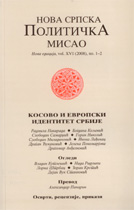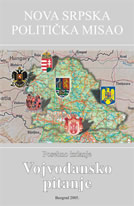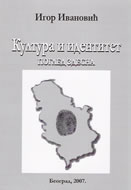| NSPM in English | |||
Can the United States and Russia Find a Common Language? |
 |
 |
 |
| nedelja, 19. jul 2009. | |
|
(Foreign Affairs, July 17, 2009)
But much more is needed for the "reset" to be real. Most important, the United States must overcome what I first described in an essay from October/November 2007 as "the unmistakable impression that making Russia a strategic partner has never been a major priority." This will require not only new vocabulary - such as "reset" - but a new sense of priority toward Russia from the Obama administration. Such an approach need not come at a cost to U.S. interests or values. But it will require an honest recognition that, since U.S. and Russian interests are not identical,Moscow is unlikely to accommodate Washington's concerns unless it sees something for itself in return. The United States' priorities with respect to Russia are Afghanistan, Iran, and North Korea. Regarding Iran, neither Washington nor Moscow wants to see the clerical regime develop nuclear weapons. However, Iran is a major Russian trading partner and - unlike Turkey, a U.S. ally - offered no encouragement to separatist movements in the North Caucasus or support for pipelines that bypass Russia. Some in the Russian government fear that a Western rapprochement with Iran could disadvantage Moscow if Iranian gas were to become available for export to Europe. Although Russian officials strongly oppose any military strike against Iran's nuclear installations, they privately acknowledge that such an attack could benefit Russia by increasing energy prices and creating a global backlash against the United States. As for Afghanistan, Russia does not want to see the Taliban defeat U.S. and NATO forces and the country descend into chaos. Nevertheless, it is frustrated at being shut out of the Afghanistan after then President Vladimir Putin supported U.S. military intervention and encouraged the Northern Alliance to provide muscle to unseat the Taliban in 2001. Moscow's priorities are different from Washington's: curbing NATO expansion, preventing the establishment of U.S. missile defense sites in Poland and the Czech Republic, and maintaining and enhancing Russia's influence in the post-Soviet region. At times, Moscow can sound like its own worst enemy, when, for example, it makes inflated claims that any expansion of NATO is unacceptable or demands privileged interests in its "near abroad." However, notwithstanding the August 2008 war against Georgia, Moscow's practical ambitions are fairly limited - especially in comparison with suspicions that Russia is seeking to reestablish the Soviet Union by coercion and force. It is hard to take Russian statements about dominance in the post-Soviet space seriously when even Russia's closest allies in the region - Armenia and, particularly, Belarus - are regularly defiant of Moscow's wishes. As for the Caucasus, although Russia did invade Georgia proper, it did so after its own forces in South Ossetia came under attack by Georgian troops. The Russian army then ultimately stopped short of entering Tbilisi and directly challenging the rule of Georgian President Mikheil Saakashvili. Even after the war, most of Russia's neighbors feel free to ignore its preferences and have not expressed fear of a Russian attack. The United States would be wise, therefore, to make a distinction between Russia's nostalgia and bravado, on the one hand, and its actions and capabilities on the other. This would leave several options for developing common ground. The United States already recognizes that neither Georgia nor Ukraine is ready for NATO membership. (This will not change anytime soon, and few NATO members support accelerating the process.) On the question of missile defense in Europe, President Barack Obama and his advisers do not share the almost religious commitment of the Bush administration - suggesting that a joint system may be possible, as is providing Russia with guarantees that if the Polish and Czech sites are eventually operational, they could not be used against Russian interests. Given all this, Russia's immediate concerns can be addressed fairly easily without sacrificing anything of real importance to the United States. The modest results of the summit are less a function of U.S. interests or even Russian conduct - which too often is counterproductive and provides good cause for those skeptical of cooperation - and more due to the Obama administration's failure to make the "reset" a priority. In this respect, U.S. policy has not changed much since the Bush and Clinton administrations. Before the summit, Washington promised a "reset" but sent a series of mixed messages. In May, NATO conducted military maneuvers in Georgia despite strong objections from Russia. Although there were good reasons to proceed with the exercises - they were small-scale, planned before Russia's war with Georgia, and included an invitation to Russia to participate - the Obama administration could have made a stronger effort to convince the Russians that the maneuvers were not directed against them. A good use of Obama's political capital would have been a presidential or cabinet-level conversation with Moscow to discuss U.S. motives and interests. Then, days before the summit, Obama criticized Russian Prime Minister Vladimir Putin for having "one foot in the old ways of doing business and one foot in the new." Considering that Putin continues to influence Russian national security, it was predictable that Russia's political elite would interpret Obama's statement as endorsing the allegedly more liberal Russian president, Dmitry Medvedev, against Putin. This could hardly have been helpful to Medvedev, whose political legitimacy still depends on Putin's support and approval. Meanwhile, Russian questions about Obama's intent only intensified when Michael McFaul, a top Russia specialist at the National Security Council, said, "We're not going to reassure or give or trade, you know, anything with the Russians regarding NATO expansion or missile defense." He went on to align U.S. "national interest" on these questions with "the interests of our allies in Europe." This statement was seen within Russia as a sign that the Obama administration was not prepared to negotiate on the issues most important to Russia and would instead settle these questions without regard to Russia's perspective and with input from new NATO member states considered antagonistic toward Russia. In Moscow, however, this is not quite how Obama acted. All issues were on the table and - to Russia's satisfaction - the two presidents signed a statement affirming the link between strategic offensive and defensive weapons. This linkage was vague, but Medvedev cited it as an acknowledgement that Russian views counted. Then, to compensate for his earlier criticism of Putin, Obama praised the prime minister's "extraordinary work" while president. Still, this did not overcome the resentment of some on the Russian side over Obama choosing to spend one of his two nights in Moscow at a nightclub with his family rather than with his Russian hosts. From Moscow's perspective, Russia offered a significant goodwill gesture in allowing U.S. military planes to fly over Russian territory on their way to Afghanistan - but it did not receive a goodwill gesture in return. In fact, on the question of repealing the Jackson-Vanik amendment - a move promised by the Obama administration and three preceding administrations - U.S. Secretary of Commerce Gary Locke said in Moscow that Russia must remove restrictions on U.S. poultry and pork imports as "a significant first step" toward persuading Congress to repeal the act. The Moscow summit was a useful step and certainly did no damage. However, it did not send a clear signal that Obama has decided to make the U.S.-Russian relationship a personal priority. Without such clarity about the president's commitment, the relationship is unlikely to progress significantly. The Bilateral Presidential Commission is helpful as an expression of presidential commitment but cannot be a substitute for it. More fundamentally, the United States needs to think more strategically about what is required to turn Russia into a responsible stakeholder in international security. Early last century, the Treaty of Versailles excluded Germany and Russia from European security architecture and thereby contributed to a chain of events that led to the outbreak of World War II. Now, more than 20 years after the end of the Cold War, Russia remains outside this NATO-dominated structure. Most officials in the United States and Europe were dismissive of Medvedev's call for a new European security treaty that would include Russia as a full partner. It is understandable that Western leaders are reluctant to do anything that might weaken NATO's mandate, especially when the alliance continues to play a role in providing security in places such as Afghanistan and Kosovo, but this should not obscure the fact that marginalizing a great power such as Russia could push it into seeking partners outside Europe, such as in China or Iran, to the detriment of U.S. interests. Estrangement from the West would cost Russia dearly, but it would not be without costs to the United States either. An isolated Russia could make it harder to use such international institutions as the UN to advance U.S. interests, as well as provide the hint of an alternative to U.S. primacy, potentially emboldening other U.S. competitors and rivals. Pursuing a partnership with Moscow is difficult and frustrating, but neglecting Russia could severely compromise the pursuit of vital U.S. national interests tomorrow and in the years to come. Dimitri K. Simes is President of The Nixon Center and Publisher of The National Interest http://www.foreignaffairs.com/articles/65203/dimitri-k-simes/an-uncertain-reset |
Ostali članci u rubrici
- Playing With Fire in Ukraine
- Kosovo as a res extra commercium and the alchemy of colonization
- The Balkans XX years after NATO aggression: the case of the Republic of Srpska – past, present and future
- Iz arhive - Remarks Before the Foreign Affairs Committee of the European Parliament
- Dysfunction in the Balkans - Can the Post-Yugoslav Settlement Survive?
- Serbia’s latest would-be savior is a modernizer, a strongman - or both
- Why the Ukraine Crisis Is the West’s Fault
- The Ghosts of World War I Circle over Ukraine
- Nato's action plan in Ukraine is right out of Dr Strangelove
- Why Yanukovych Said No to Europe

.jpg)








 Predictably, both Russia and the United States have portrayed the recent summit in Moscow as a success. Indeed, the summit did produce some positive signs: a resumption of serious arms control negotiations after years of neglect, an agreement on U.S. military overflights of Russian territory to Afghanistan, and the creation of the U.S.-Russia Bilateral Presidential Commission, a structure that could give the relationship a high-level institutional focus.
Predictably, both Russia and the United States have portrayed the recent summit in Moscow as a success. Indeed, the summit did produce some positive signs: a resumption of serious arms control negotiations after years of neglect, an agreement on U.S. military overflights of Russian territory to Afghanistan, and the creation of the U.S.-Russia Bilateral Presidential Commission, a structure that could give the relationship a high-level institutional focus.












